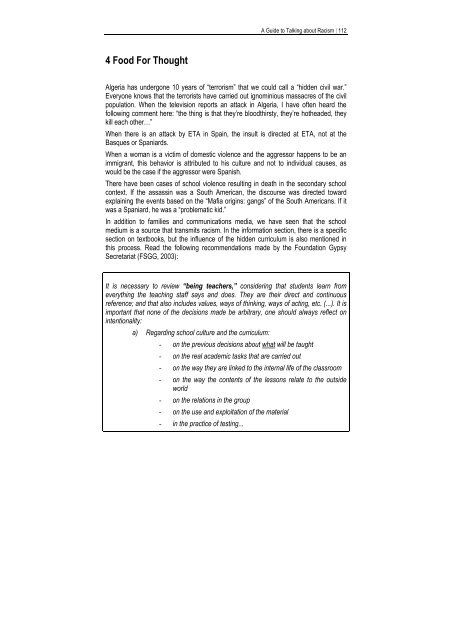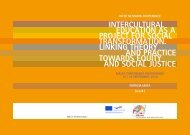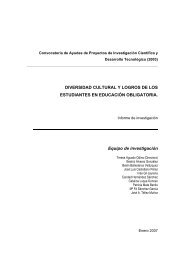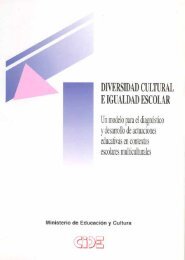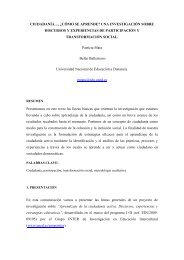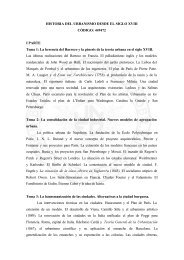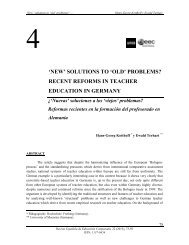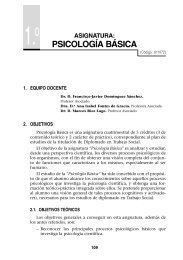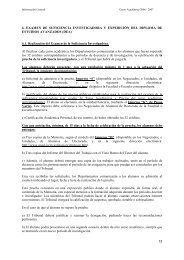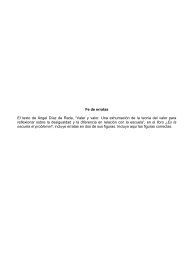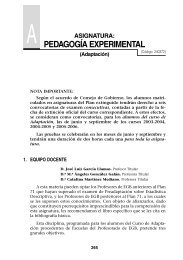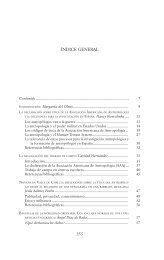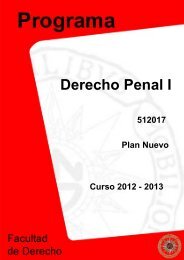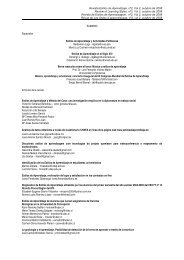Racism: What It Is and How to Deal with It - Uned
Racism: What It Is and How to Deal with It - Uned
Racism: What It Is and How to Deal with It - Uned
Create successful ePaper yourself
Turn your PDF publications into a flip-book with our unique Google optimized e-Paper software.
A Guide <strong>to</strong> Talking about <strong>Racism</strong> | 112<br />
4 Food For Thought<br />
Algeria has undergone 10 years of “terrorism” that we could call a “hidden civil war.”<br />
Everyone knows that the terrorists have carried out ignominious massacres of the civil<br />
population. When the television reports an attack in Algeria, I have often heard the<br />
following comment here: “the thing is that they’re bloodthirsty, they’re hotheaded, they<br />
kill each other…”<br />
When there is an attack by ETA in Spain, the insult is directed at ETA, not at the<br />
Basques or Spaniards.<br />
When a woman is a victim of domestic violence <strong>and</strong> the aggressor happens <strong>to</strong> be an<br />
immigrant, this behavior is attributed <strong>to</strong> his culture <strong>and</strong> not <strong>to</strong> individual causes, as<br />
would be the case if the aggressor were Spanish.<br />
There have been cases of school violence resulting in death in the secondary school<br />
context. If the assassin was a South American, the discourse was directed <strong>to</strong>ward<br />
explaining the events based on the “Mafia origins: gangs” of the South Americans. If it<br />
was a Spaniard, he was a “problematic kid.”<br />
In addition <strong>to</strong> families <strong>and</strong> communications media, we have seen that the school<br />
medium is a source that transmits racism. In the information section, there is a specific<br />
section on textbooks, but the influence of the hidden curriculum is also mentioned in<br />
this process. Read the following recommendations made by the Foundation Gypsy<br />
Secretariat (FSGG, 2003):<br />
<strong>It</strong> is necessary <strong>to</strong> review “being teachers,” considering that students learn from<br />
everything the teaching staff says <strong>and</strong> does. They are their direct <strong>and</strong> continuous<br />
reference; <strong>and</strong> that also includes values, ways of thinking, ways of acting, etc. (...). <strong>It</strong> is<br />
important that none of the decisions made be arbitrary, one should always reflect on<br />
intentionality:<br />
a) Regarding school culture <strong>and</strong> the curriculum:<br />
- on the previous decisions about what will be taught<br />
- on the real academic tasks that are carried out<br />
- on the way they are linked <strong>to</strong> the internal life of the classroom<br />
- on the way the contents of the lessons relate <strong>to</strong> the outside<br />
world<br />
- on the relations in the group<br />
- on the use <strong>and</strong> exploitation of the material<br />
- in the practice of testing...


